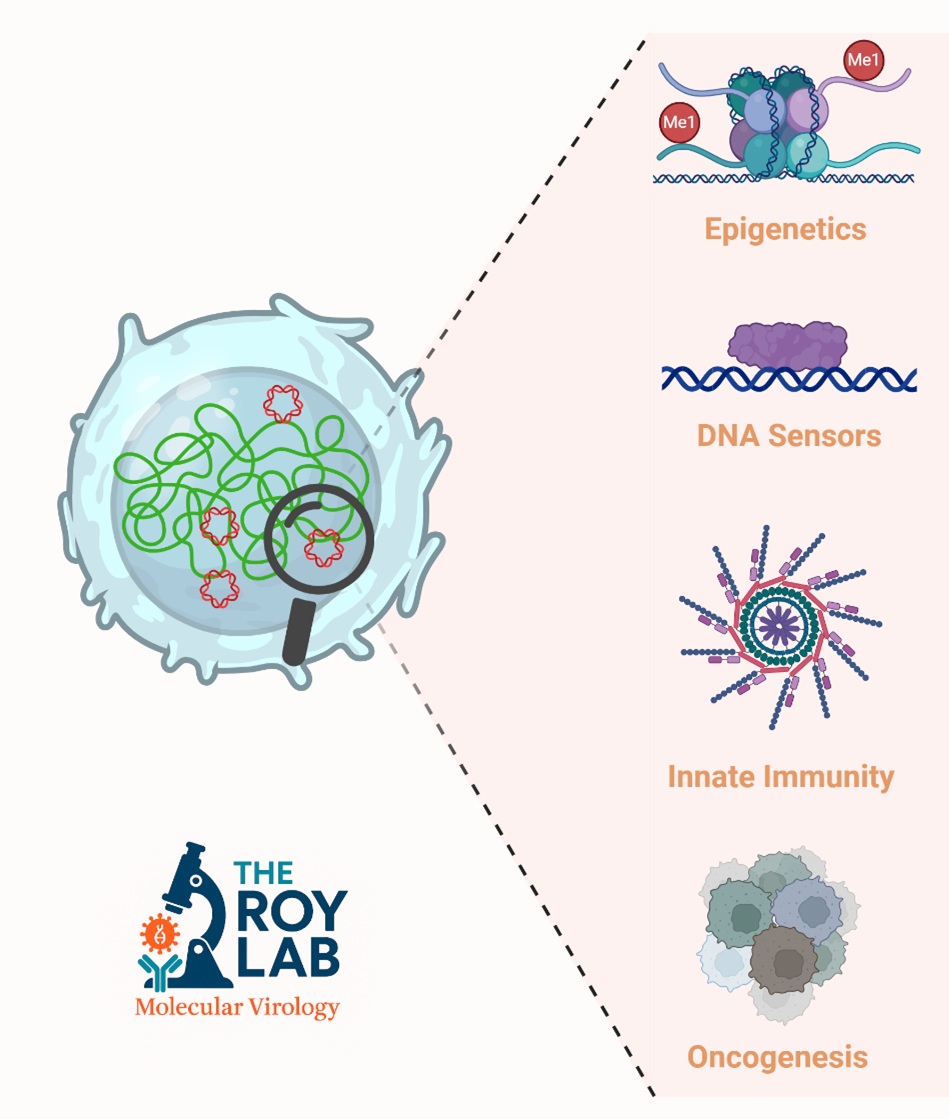Arunava Roy
aroy5@lsuhsc.edu
Assistant Professor

“Exploring the molecular playbook of oncogenic herpesviruses”
The Roy Lab investigates the molecular strategies by which oncogenic human herpesviruses, particularly Kaposi’s sarcoma–associated herpesvirus (KSHV) and Epstein–Barr virus (EBV), establish persistent infection, evade host defenses, and contribute to oncogenesis. These γ-herpesviruses are causally linked to several human malignancies, including Kaposi’s sarcoma, primary effusion lymphoma, multicentric Castleman’s disease, Burkitt lymphoma, and nasopharyngeal carcinoma. Despite decades of study, fundamental questions remain regarding how these viruses co-opt cellular programs to persist in their human hosts for life.
Our research centers on the intersection of molecular virology, innate immunity, intrinsic immunity, also called restriction factors, and epigenetics. A hallmark of KSHV and EBV biology is their ability to persist as chromatinized, extrachromosomal episomes in the nuclei of infected cells. During latency, viral gene expression is highly restricted, enabling immune evasion while maintaining the capacity for reactivation upon appropriate conditions. This delicate balance relies on dynamic interactions between the viral genome and host regulatory systems, including chromatin remodeling complexes, histone modification machinery, and DNA- and RNA-sensing innate immune pathways. By dissecting these mechanisms, our goal is to illuminate fundamental principles of virus–host interactions, paving the way towards effective strategies for eliminating latent infections.
Research Focus
- Novel Restriction Factors Targeting γ-Herpesviruses
- Epigenetic Regulation of Latency and Reactivation
- Mechanisms of Viral Genome Persistence
- Oncogenic Consequences
Publications
Team
Anjali Pathania, Ph.D., Postdoctoral Fellow
apatha@lsuhsc.edu
Anjali received her Ph.D. from Bar-Ilan University, Israel, where she studied the role of cohesin in maintaining genome stability. Before joining the Roy Lab, she completed her first postdoctoral fellowship at The Wistar Institute, investigating how chromatin remodeling proteins influence Epstein–Barr virus (EBV)-associated gastric cancer. In the Roy Lab, she is leveraging her expertise in molecular and chromatin biology to explore how Kaposi’s sarcoma–associated herpesvirus (KSHV) manipulates the host epigenetic machinery to establish latency and drive oncogenesis.

